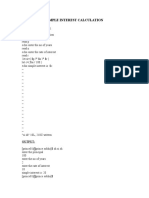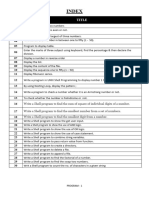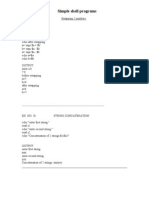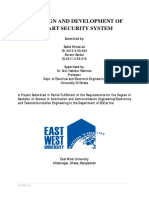0% found this document useful (0 votes)
33 views47 pagesOs Lab Assignment
The document provides a comprehensive overview of basic Linux commands, including their syntax and descriptions, as well as various shell scripting examples for common programming tasks such as calculating factorials, checking for prime numbers, and generating Fibonacci series. It includes source code snippets and expected outputs for each example, demonstrating practical applications of the commands and scripts. Additionally, it covers topics like file permissions, simple interest calculations, and sorting algorithms.
Uploaded by
sayanmetya222Copyright
© © All Rights Reserved
We take content rights seriously. If you suspect this is your content, claim it here.
Available Formats
Download as PDF, TXT or read online on Scribd
0% found this document useful (0 votes)
33 views47 pagesOs Lab Assignment
The document provides a comprehensive overview of basic Linux commands, including their syntax and descriptions, as well as various shell scripting examples for common programming tasks such as calculating factorials, checking for prime numbers, and generating Fibonacci series. It includes source code snippets and expected outputs for each example, demonstrating practical applications of the commands and scripts. Additionally, it covers topics like file permissions, simple interest calculations, and sorting algorithms.
Uploaded by
sayanmetya222Copyright
© © All Rights Reserved
We take content rights seriously. If you suspect this is your content, claim it here.
Available Formats
Download as PDF, TXT or read online on Scribd
/ 47























































































